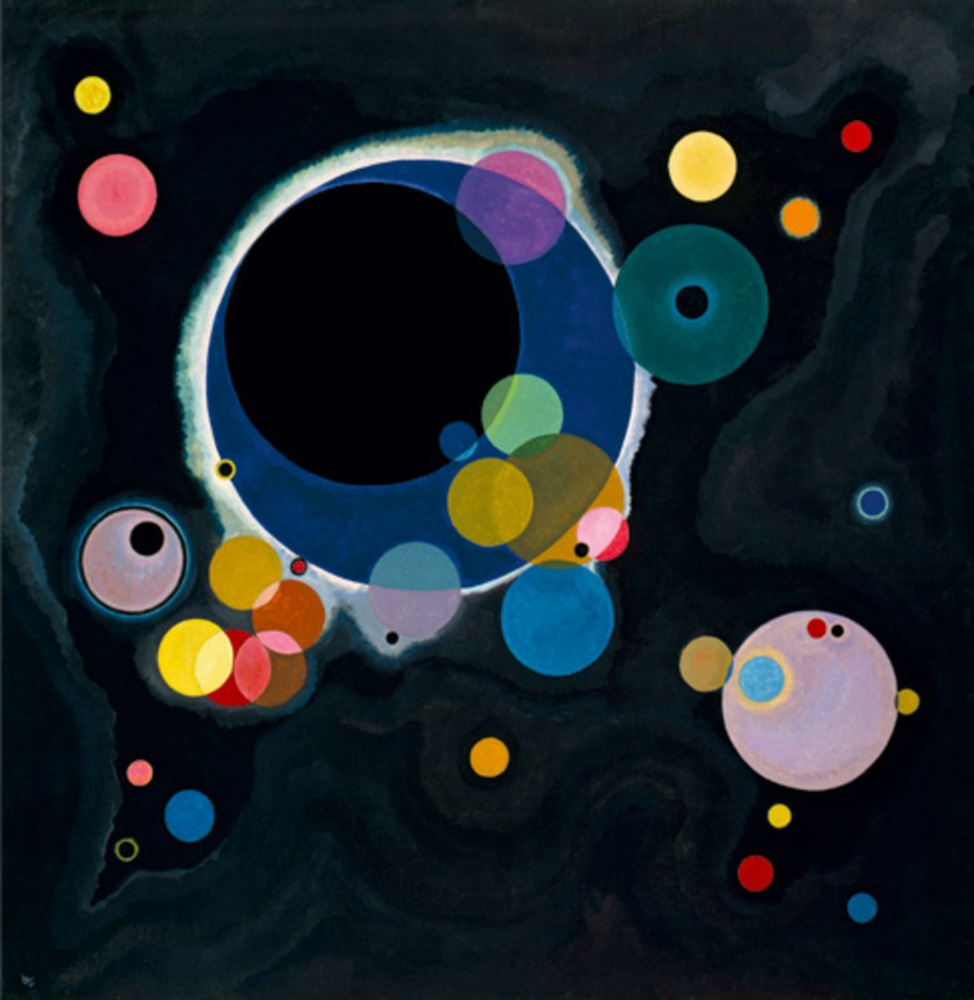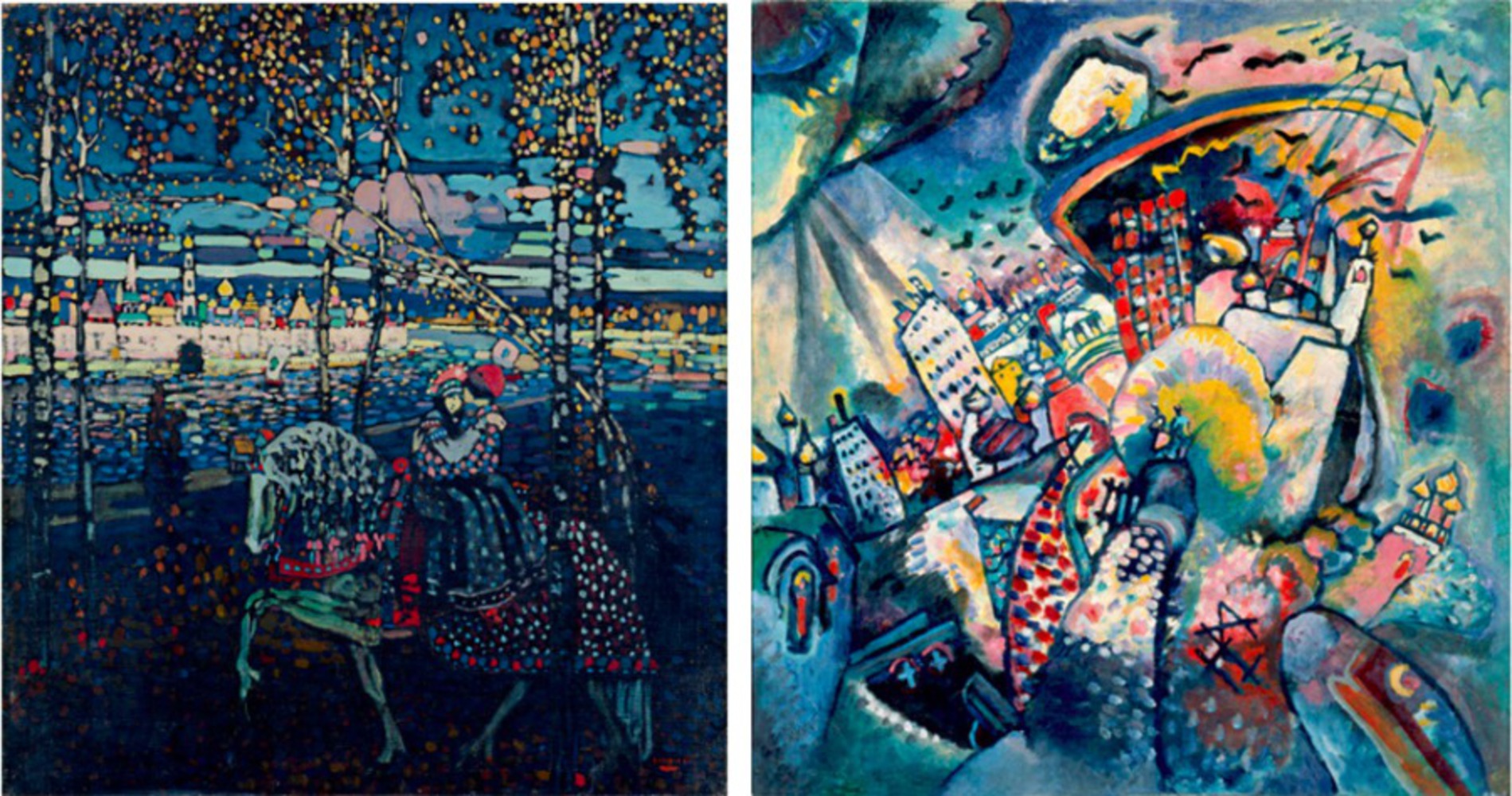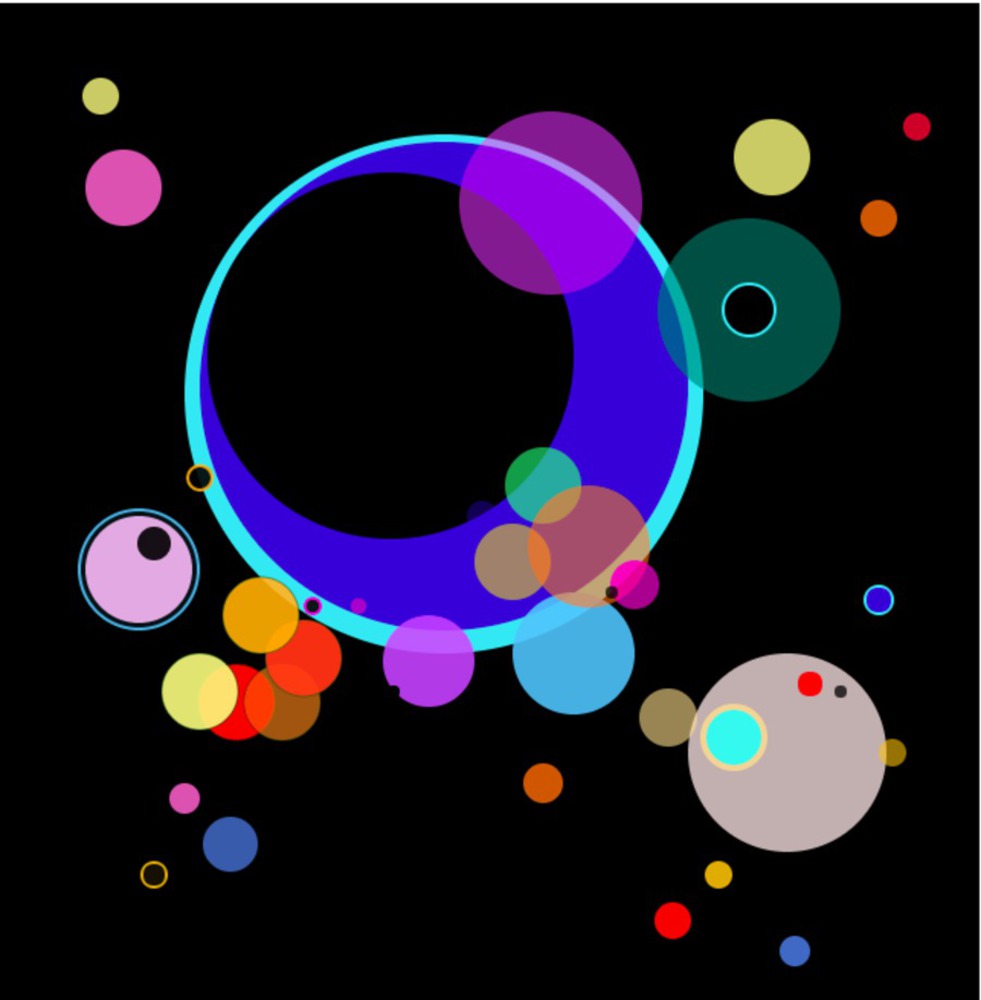Artist
Kandinsky was a Russian painter born in 1866. He began painting at age 30, and his works have been categorized into six main themes: horse and rider, apocalypse, landscape, music, geometry, and scientific imagery. Although the content of his paintings evolved over his career, all along his “journey towards abstraction” Kandinsky “sought to convey profound spirituality and the depth of human emotion” through his work. To Kandinsky, art was more about a “visual” or “pictorial” language that was “loosely related to the outside world” than about creating an accurate or realistic depiction of reality. His increasingly abstract use of forms and colors were an attempt to convey “universal human emotions and ideas.”
To Kandinsky, art was spiritual. He is considered “one of the pioneers of abstract modern art” because of his tendency to use color and form abstractly in an effort to convey strong sentiments or to engage the “sight, sound, and emotions” of his audience.






